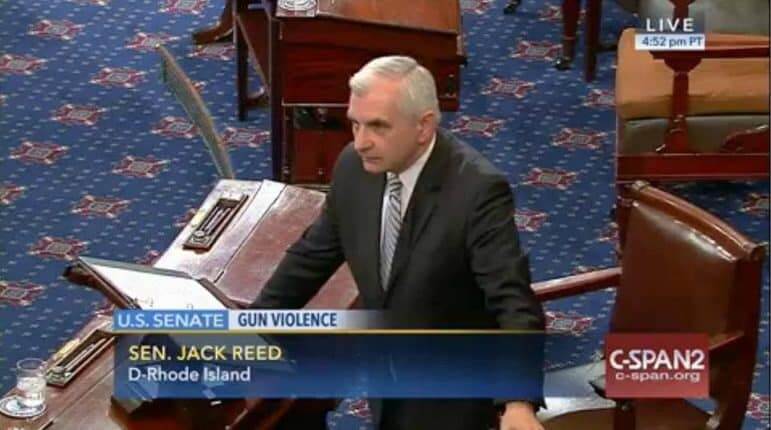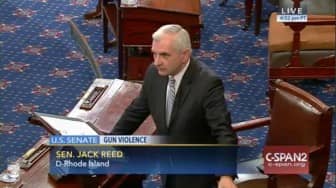

WASHINGTON, DC – Wednesday, U.S. Sen. Jack Reed (D-RI) and colleagues sent a letter to Consumer Financial Protection Bureau (CFPB) Director Rohit Chopra urging speedy supervision of large Buy Now Pay Later providers.
In a statement about the letter, Reed said CFPB supervision of buy now, pay later companies would better protect American consumers and ensure that financial firms offering buy now, pay later (BNPL) products comply with consumer protection laws.
The letter, signed by Reed, Sherrod Brown (D-OH), and Tammy Duckworth (D-IL), points out such supervision falls under the CFPB’s authority.
“Congress provided the CFPB with supervisory authority over ‘larger participants’ in consumer finance markets. The CFPB has rule-making authority to determine who is a ‘larger participant,’ and we urge you to exercise this authority to supervise the largest BNPL lenders,” the letter reads.
BNPL products offer consumers the option to purchase a product and pay for it in four equal installments, with each repayment typically due every two weeks. As more consumers turned to online shopping in the midst of the COVID-19 pandemic, the number of BNPL loans taken out by customers skyrocketed. According to CFPB research, the five largest market participants originated $24.2 billion in BNPL loans in 2021 – a tenfold increase since 2019, Reed’s office noted in announcing the letter to the CFPB.
Despite the soaring use of Buy Now Pay Later credit, the CFPB does not currently examine the lending practices of the nation’s largest BNPL providers.
The senators believe that strong Federal supervision is long overdue: “Supervisory expectations for BNPL lenders should keep pace with the explosion of consumer interest in these loans. BNPL providers are not currently subject to Federal supervision by the CFPB. Rather, they may be subject to supervision only by the states in which they do business. Some states require registration and conduct examinations, while others do not. This patchwork system may allow potential violations of consumer protection laws to fall through the cracks, leaving consumers exposed to harm. BNPL borrowers may be particularly vulnerable. According to CFPB research, they ‘exhibit measures of financial distress that are statistically significantly higher than other consumers.’”
With big tech companies planning to enter the BNPL market, new twists on the existing BNPL product are raising questions about concentration of market power and threats to privacy given incentives to monetize consumer data. CFPB supervision of the largest BNPL lenders could help spot violations of consumer financial protection laws or abusive practices before they spiral out of control and have widespread impacts on consumers.
” Any supervisory program should be tailored to the size of each BNPL lender, the volume of its lending activity, and the extent of existing state oversight. Consumers have an expectation that whatever form of credit they choose, their lender will deal with them honestly and will comply with the law,” wrote the three senators. “That’s why Federal supervision should not turn on whether a borrower uses BNPL credit from a nonbank or a credit card issued by a bank.”
In urging the CFPB to apply its existing authority to supervise the nation’s largest BNPL lenders, the senators called for on-site examinations to review lenders’ books and records, interview management, and evaluate compliance systems. Furthermore, the senators said the CFPB should issue confidential examination reports and compliance ratings. Finally, the senators urge the CFPB to aggressively and publicly enforce the consumer financial protection laws if lenders fail to address deficiencies identified through a Federal supervision and examination process.
This is a test

